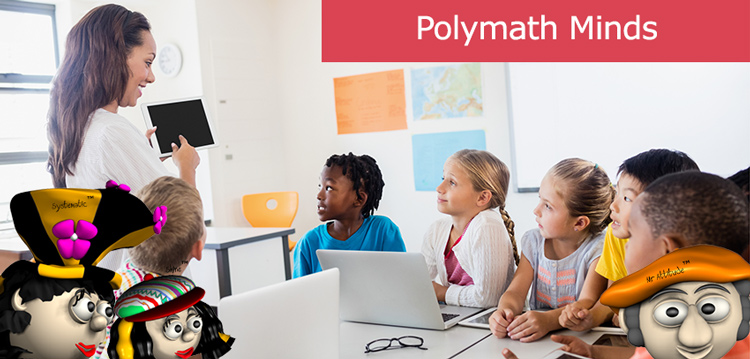Developing “Polymath Minds” with Tinkering Computational Thinking, and Robotics
The University of Oxford forecasts that in the next 20 years as many as 47 percent of jobs around the globe will become completely automated. Meanwhile, predictions on the number of connected devices that will be in use by 2020 as part of the Internet of Things vary from 20 billion to 75 billion.
Because of this proliferation of Computers, Apps and Robotics, there’s a growing anxiety about the increasing role of artificial intelligence and computers, in particular, whether machines will make workers obsolete. Understanding what computers can and can’t do is fundamental in addressing these anxieties. Schools and teachers from all disciplines need to teach students how to remodel the technological world around them, we can help them become creators rather than just consumers of technology.
Furthermore, today’s students need to learn, invent, teach others, collaborate, and share their knowledge when it best suits their personal needs, interests and style.
Classrooms need to become places of great joy, creativity, and collaboration that lead students to transform from passive consumers to active creators and inventors.
Teachers need to combine multiple disciplines, enhance learning and prepare students for diverse pathways that prepare them for unforeseen career paths.
Schools need to actively involve student participation by offering multidisciplinary learning experiences and create polymaths…
The real world commands that these “Polymath” versatile, flexible, highly innovative creative minds will be ready to change professions at least 3 times during their lifetime. (Think Tank on Global Education Harvard 2016)
As school instruction still separates disciplines, schools need to offer STREAMS (Science, Technology, Reading, Engineering Arts, Mathematics and Social Sciences) transdisciplinary experiences. These experiences need to engage and stimulate students in getting actively involved in active learning. During this process, students need to take control of their own learning and take the lead. Only innovative learning experiences inspire students’ imagination and participating and involvement during class instruction.
At the moment, national curricula are advocating that students need to be exposed to computer science, coding, (“Learn to Code Before You Learn to Read”), computational thinking and robotics from kindergarten to 12th grade! The educator community and schools need to simply inspire students to imagine and take control of their own destiny with enthusiasm and confidence.
This seminar is aspirational inspirational and practical as it offers school leaders, educational consultants and curriculum coordinators values, tools and activities that enrich and accelerate the learning process.

